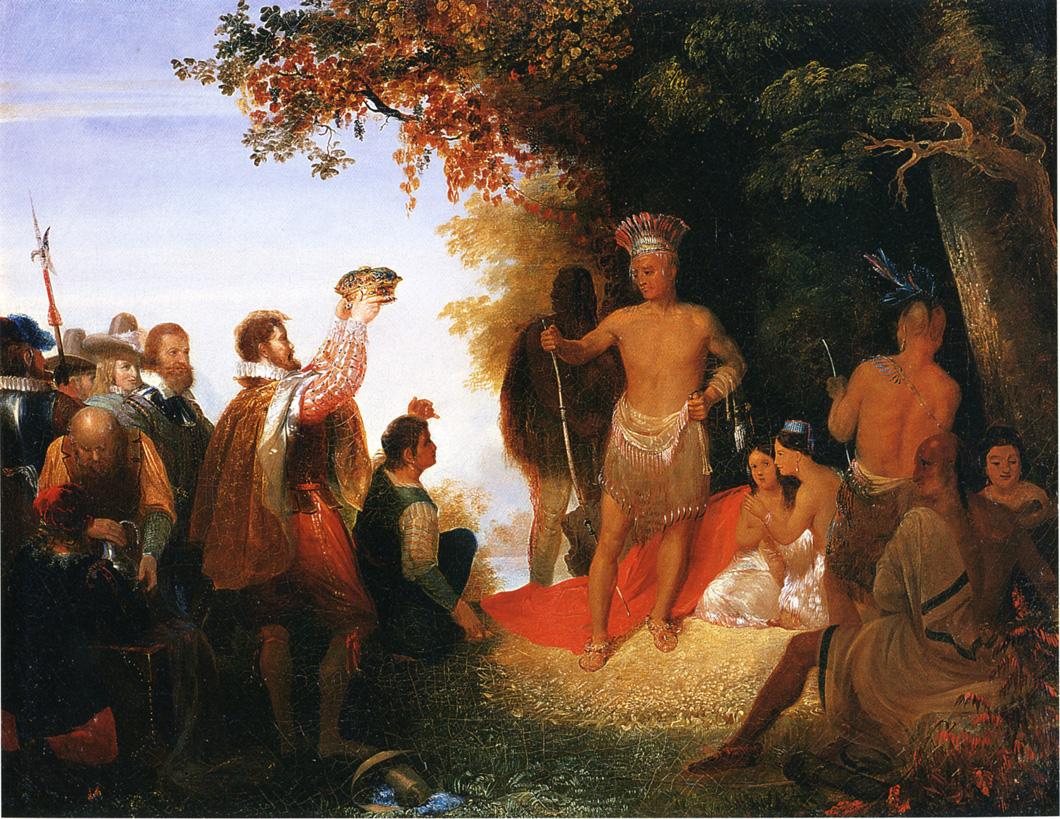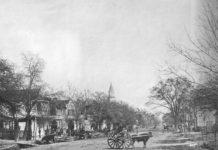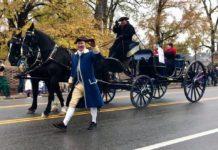The Powhatan Confederacy was a paramount chiefdom of Virginia’s Algonquian-speaking tribes during the early 17th century. It was led by Chief Powhatan, also known as Wahunsenacawh, who expanded his authority over numerous tribes in the Tidewater region of present-day Virginia.
Powhatan inherited leadership of the Pamunkey tribe and began consolidating power through alliances and conquests. By the time English settlers arrived in 1607 at Jamestown, Powhatan had brought about 30 tribes under his control, forming the Powhatan Confederacy.
The Confederacy’s territory covered much of coastal Virginia, centered around the James River. Powhatan’s realm included hundreds of villages, each with its own chief or weroance, who owed allegiance to Powhatan.
Relations between the Powhatan Confederacy and the English settlers were initially strained but not overtly hostile. Powhatan was initially curious about the newcomers and saw them as potential allies or trading partners. However, as English settlements expanded and their demands for land grew, tensions escalated.
The most famous incident between the Powhatan Confederacy and the English colonists was the Powhatan Uprising of 1622. Chief Opechancanough, Powhatan’s younger brother and successor, orchestrated a coordinated attack on English settlements, resulting in the deaths of around 350 colonists, about a quarter of the English population in Virginia at the time.
This uprising led to a prolonged period of conflict known as the Anglo-Powhatan Wars. The English ultimately prevailed, largely due to superior weaponry, diseases that devastated Native populations, and the capture and execution of Opechancanough in 1646.

After the wars, the Powhatan Confederacy was greatly weakened, and its tribes were forced to accept English dominance. Many Powhatan people were displaced from their lands, and their cultures and communities were profoundly disrupted.
Despite this, some Powhatan descendants persisted, and today there are several organized Powhatan tribes in Virginia, working to preserve their culture, history, and sovereignty. The legacy of the Powhatan Confederacy continues to be an important part of Virginia’s history and the broader narrative of Native American-European encounters in North America.


























